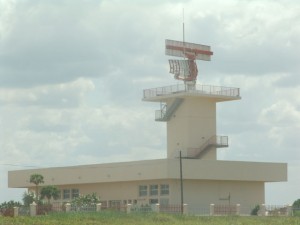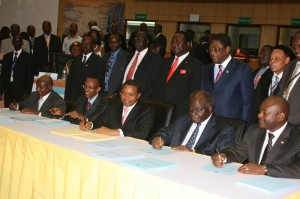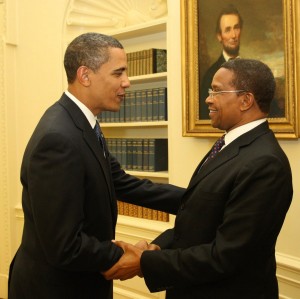The very busy Director General of the Prevention and Control of Corruption Bureau (PCCB), Dr Edward Hoseah, has revealed to the investigative newspaper ‘This Day’ that the forthcoming trials of prominent citizens all involved ‘grand corruption.’ Several investigations were being finalised, he said.
Meanwhile, the Swiss Ambassador in Dar, during the launch of an online corruption tracker system, pledged to help Tanzania recover any public funds that may have been stashed away in its banks by corrupt people. The ambassador said his country would also “gladly help to repatriate funds” confirmed to have been looted from Tanzania and hidden in Swiss banks.
‘The least corrupt’
In spite of all this, a new Transparency International report released in July said that Tanzania was the least corrupt nation in the East African region. The Kenya Police were said to be the most corrupt institution in East Africa and Kenya had the highest incidence of corruption at 45%. Uganda was 34% and the figure was similar in Tanzania.
The High Commissioner speaks on ‘grand corruption’
Tanzanian High Commissioner in London, Mrs Mwanaidi Maajar, interviewed in the Guardian, said that ‘in the war on grand corruption, people in other countries shouldn’t judge Tanzania by the number of reports on corruption appearing in the media but by the way the country was fighting the vice. ‘International opinion makers normally focus on what governments are doing about it. For example, people in the UK are keen to know what the government will do to ensure that expenditure-related scandals involving MP’s do not recur because that is what matters the most.’ The Tanzanian government had done a lot to address the corruption problem, she said.
The Richmond case
This scandal, which resulted in the resignation of former Prime Minster Edward Lowassa and other ministers, has been described in detail in earlier issues of TA. A House Select Committee formed in 2007 said there was ample evidence that Richmond was a briefcase company incapable of manufacturing even electric bulbs; it could not have complied with an agreement it made to supply electricity to Tanzania. The committee made many recommendations but there was no reaction from the government for several weeks. MP’s began to complain.
Finally in August the government issued its response entitled: ‘Implementation of the Parliamentary Directives.’ It exonerated PCCB Director-General Edward Hosea and Attorney General Johnson Mwanyika. It also exonerated civil servants whose names had been linked to the contract. None of the officials was liable for legal action and the government would take punitive measures only if an official was implicated in the ongoing court cases against the owners of the Richmond Company. MP’s were far from happy with this and the government came under fire from all sides of the House. Opposition CHADEMA MP Zitto Kabwe told The Citizen that the Richmond debacle had exposed the Government and heightened its differences with parliament.
President Kikwete
After what was described as the ‘fierce debate’ in parliament, rumours began to circulate about a possible involvement by the president himself in the scandal. Within hours of the debate the State House issued a remarkably detailed response strongly denying the rumours.
It said that the president was involved in four different stages of the saga. In the first stage, he allowed Tanesco to hire emergency power generating plants. At the second stage, he asked the World Bank to allow Tanzania to use a portion of its aid granted by the Bank under the Debt Relief Initiative, to pay the cost of hiring emergency power generating plants during the 2006 electricity crisis. The Bank allowed Tanzania to spend $225million to hire emergency power generating plants. Part of the money was used to buy a 100 megawatt power plant. The President was also involved in chairing all cabinet meetings that discussed the 2006 power crisis. During these meetings the President made it clear that despite the looming power crisis, public procurement procedures should be followed to ensure that Tanesco got a competent bidder. At the fourth stage, the President blocked a $10 million down payment to Richmond and demanded accurate reports about the integrity of the Texas-based company. The President had also rejected an application by the Ministry of Energy and Minerals, seeking approval for Richmond’s request to receive down payments. The President also demanded thorough research about the company before the releasing of any down payments.
The Radar saga
A ‘This Day’ reporter wrote that it appeared that the PCCB was having difficulty in building an airtight case against some prominent suspects in this three-year long $28 million military radar transaction scandal. In February the PCCB said the Director of Public Prosecutions (DPP) had opted to withhold his mandatory consent for the prosecution of the suspects pending further investigations. The paper reported in August that the PCCB had lined up at least five major corruption cases for early prosecution but it was yet to obtain consent from the office of the DPP to prosecute the Radar trial.

Part of the radar component at the International Airport in Dar
The Bank of Tanzania scandal
One of the accused in the case involving the Shs 133 billion losses incurred by the Bank of Tanzania (BOT) has said he made his confession of guilt under duress.
Meanwhile, questions over the BoT’s expenditure were again highlighted in the latest report of the office of the Controller and Auditor General (CAG) which reported on fraudulent public procurement procedures, dubious agreements and cheating on allowances which had caused causing massive loss of public funds. Extract: ‘For example, the Dar twin-tower construction agreement indicated that the contractor had to pay both the public liability risk insurance and the damage to property risk insurance. But the BoT also signed an agreement with an insurance agent and paid Shs7.3bn for a similar purpose.’
The Kiwira Coal Mine saga
Several new developments: Following China’s contribution to the construction of the Shs 4.2 million mine in the early 1980s it soon ground to a halt before former President Mkapa’s administration decided to sell it in a controversial deal in which the former president himself with family and partners, was alleged to have bought the mine at a cut-down price.
In July 2009 however the Government absolved Mkapa from suspicions surrounding the mine’s sale telling Parliament that the former President withdrew his 200,000 shares from the firm in 2005 after the firm through which he had bought the shares failed to pay for them. This absolved him from accusations that he used his influence as head of state to engineer the failed venture.
On June 5 Energy and Minerals Minister William Ngeleja announced that the government had taken back the mine and was determined to implement a project to generate 200 megawatts of electricity within 18 months.
Finally, in August, Prime Minister Mizengo Pinda announced that China was going to invest $400 million to revive the mine which was no longer operating – The Citizen.
DECI
The Guardian reported in May on a financial scheme, started in 2007 and known as the ‘Development Entrepreneurship Community Initiative’ or DECI – a pyramid or ponzi scheme. In a short space of time membership had grown to some 700,000 and it was believed to have 46 up-country branches. Apparently an alert by the media helped to make ‘largely innocent public and overly gullible government agencies’ wake up to the fact that this money game was criminal. Finally the government issued a statement declaring that enough was enough and effectively prevented the scheme from continuing [see TA 93]
However, 82 Pentecostal Church of Tanzania leaders had earlier called on the government to intervene in favour of DECI in its wrangle with the Bank of Tanzania and the Capital Markets and Securities Authority over the legitimacy of the scheme’s operations. After the government ordered DECI to close down, five DECI officials, said to be pastors of the Pentecostal Church, appeared in court charged with illegally conducting and managing the pyramid scheme.



